

First Visit to the Urologist? Here’s What to Expect
by Urology Specialists | Aug 2, 2020
How to Prepare for Your First Visit to the Urologist
A urologist is a specialist who treats conditions related to the male reproductive organs, along with the male and female urinary tracts. Regardless of any preconceptions you may have due to the nature of this specialty, your first visit with a urologist does not have to be intimidating or embarrassing!
If you have been referred to a urologist by your primary care provider, there is likely a medical issue your doctor is seeking a second opinion for. Specialists are great for taking a deeper look into certain urological concerns and providing specialty treatment options your PCP might not have access to. While a referral to a specialist doesn’t necessarily mean something urgent is developing, it is important to take your appointment with a urologist seriously. Come prepared with questions or concerns ensuring you get the most out of your appointment and find the correct treatment.
For an idea of what to expect during your first visit with a urologist, here is a breakdown of why you should see a specialist and what your first appointment will likely consist of.
Why and When You Need to See a Urologist
There’s a common misconception that urologists only treat male patients. In reality, a urologist treats both males and females for various health concerns relating to the urinary system and reproductive organs. Your urologist is an expert when it comes to the urinary system , which includes the kidneys , bladder, ureters (thin muscles that carry urine into the bladder) and urethra (tube that drains urine out of the bladder).
As a male, if you are experiencing any of the following conditions, it’s recommended that you see a urologist:
- Issues when urinating such as pain or the presence of blood
- Sudden changes in smell, color, or odor of urine
- Urinary leakage or problems with urine flow
- Kidney stones or kidney pain in general
- Concerns regarding the testicles, penis , or prostate
- Low sperm count
- Cancer of the kidneys , bladder , testicles , penis, or prostate
- Hormone imbalance such as low testosterone
Female patients are encouraged to see a urologist for the following conditions:
- Bladder issues, like overactive bladder (OAB)
- Recurrent urinary tract infections
- Cancer of the kidneys or bladder
- Low sex drive
How to Prepare for Your First Visit with a Urologist
As mentioned, the best way to make sure you get the most out of your time is to come prepared. When your urologist is equipped with your complete information, they can provide you with an accurate treatment plan going forward.
Here are some preparation tips for your first visit with a urologist.
When checking in, it’s likely that you will be asked for a urine sample for a urinalysis . We always recommend you come to your appointment with a full bladder. The results from the urinalysis will give your doctor an inside look as to what’s going on with your urinary system’s organs.
In addition, you may be asked to fill out a questionnaire to describe your symptoms. Please provide as much detail as possible. Rate the severity of your symptoms and make note of the timing. It’s always helpful to keep track of this information beforehand and then bring it to the appointment with you. Review your symptoms with your urologist and ask any questions you have.
A staff member will record your detailed medical history so that our providers are able to have a complete overview of your health. A list of any medications you are taking should be included with this information and updated each time you see a physician. Be sure to mention any supplements or herbs you are taking as well.
For more information about what to expect during your first visit with a urologist, download our guide: Steps to Prepare for Your Upcoming Urology Specialists Appointment . Included in this guide is a list of questions to ask your doctor and the potential diagnostic services they may recommend.
What Your Urologist is Looking For
The urologist will perform a physical exam that may include the following:
- For men with prostate issues, a digital rectal exam is standard in this industry. This exam allows the doctor to physically examine the prostate. Other tests may include a urethral swab to rule out any sexually transmitted diseases, and blood work to check your PSA (Prostate-Specific Antigen) level.
- For women dealing with recurrent urinary tract infections (UTIs), a pelvic exam may be done along with a urinalysis. Testing for female low sex drive typically requires a blood panel to determine hormone levels.
- Those with urinary incontinence symptoms will undergo a cough stress test to determine urine loss.
- Any concerns regarding cancer will include blood work along with relevant physical exams.
Once your doctor has examined you, they will discuss their findings and possible solutions. Depending on your symptoms, your doctor may recommend treatments such as medication, physical therapy, or a surgical procedure. Make notes when your physician reviews a treatment plan with you. Now is the time to ask any clarifying questions regarding what you have just been told. Remember, if you are unsure of something, just ask! You and your urologist will work together to decide what is right for you.
Your Appointment with the Urology Specialists of the Carolinas
During your first visit with a Urologist Specialist of the Carolinas, you can rest assured you are in good hands. Our established medical staff treats a full spectrum of adult urological conditions to ensure you age healthy and gracefully. As the top specialists in our area, we provide treatment options with your best interests in mind.
If you are in need of a urologist, schedule an appointment with us by clicking the button below.
Request An Appointment
This content was originally published in 2015 and updated in 2020.

- Our Providers
- Appointments
- Video Visits
- Call Now: (847) 382-5080
- Adrenal Tumors
- Adult Circumcision
- Bladder Cancer
- Enlarged Prostate (BPH)
- Erectile Dysfunction (ED)
- Interstitial Cystitis
- Kidney Cancer
- Kidney Stones
- Low Testosterone
- Male Infertility
- Men’s Health
- Neurogenic Bladder
- Overactive Bladder
- Penile Cancer
- Penile Implants
- Peyronie’s Disease
- Premature Ejaculation
- Prostate Cancer
- Prostatitis
- Testicular Cancer
- Urethral Stricture
- Urinary Incontinence
- Urinary Retention
- Urinary Tract Infections
- Vasectomy Reversal
- Female Pelvic Medicine
- Pelvic Prolapse
- Patient Portal
- Pay Your Bill Online
- In-Office Dispensary
- Clinical Trials
- Diagnostic Testing
- Neuromodulation
- UroLift Procedure
- da Vinci Robotic Surgery
- Transurethral Vaporization of the Prostate/Greenlight (Photovaporization of Prostate)
- Chicago, IL
- Huntley, IL
- McHenry, IL
- Patient Forms
- Office Policies
First Urologist Visit? Here’s What to Expect
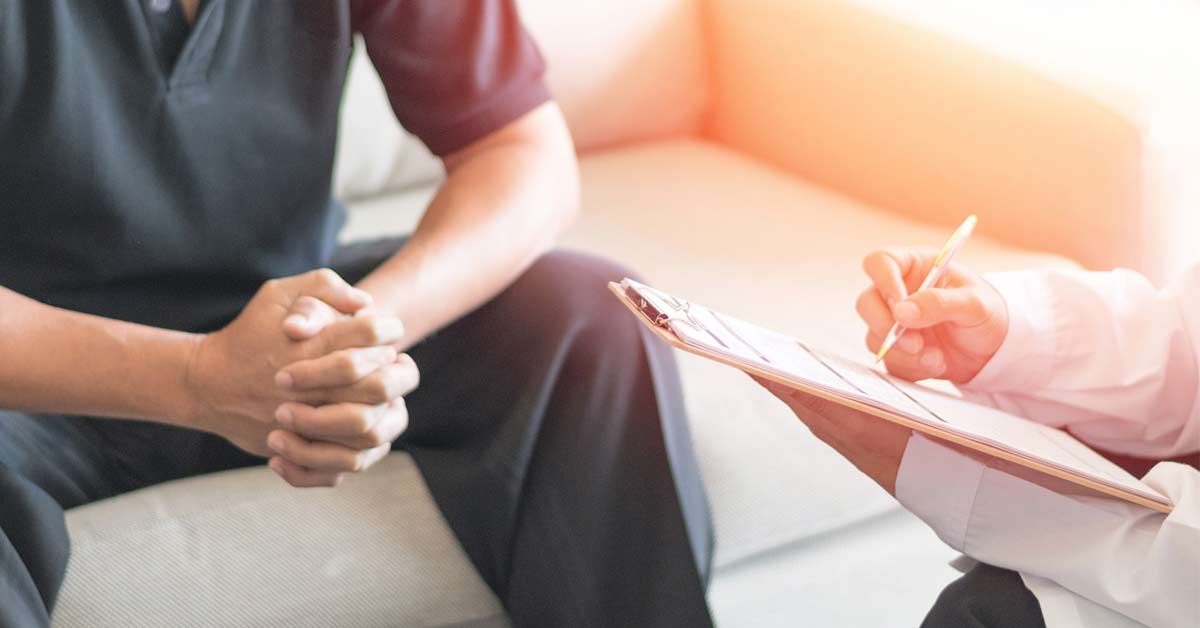
Just thinking about a urology visit can be uncomfortable, especially if you don’t know what to expect. You may be worried about your symptoms, and afraid that your appointment will be invasive or uncomfortable. You’re not alone! Most people are nervous about urology appointments. Although your visit may be outside your comfort zone, knowing what to expect can ease your concerns and make the visit more successful.
What does a urologist do?
You probably know why you were referred to a urologist but may not be exactly sure what one does. Urologists treat a variety of conditions of the urinary tract for men and women, and of the reproductive system of men. This includes bladder, prostate, and kidney problems. Urologists can treat men or women of any age – even children – and treat many different conditions. For example:
- Problems when urinating
- Enlarged prostate
- Bladder issues
- Kidney stones
- Incontinence
- Erectile dysfunction
- Male infertility or hormone problems
- Some cancers, including prostate cancer , kidney cancer , and bladder cancer
What happens during your first visit?
If you’re seeing a urologist for the first time, it may be because your primary care doctor wants a specialist’s opinion about some symptoms you’re experiencing. On your first visit, your urologist will look for the cause of your condition so you can plan the best course of treatment together.
Before your exam:
Before you leave for your appointment, it can be helpful to:.
- Make a list of medications and supplements you take
- Write down the symptoms you’ve been having, noting when and where you notice them
- Write down any questions you have for the nurse or urologist
- At your appointment, you might be asked to:
- Provide a urine sample. Go to your appointment with a full bladder!
- Fill out a questionnaire about your symptoms
- Answer questions about your medical history
- Provide a list of your medications, including any supplements and herbs you may take
Your doctor might also:
- Give you a physical exam
- Perform a digital rectal exam (DRE) on men with prostate issues
- Perform a pelvic exam on women
- Order tests (urine, blood, scans, swabs to test for infections)
- Perform a cough stress test if you have urinary incontinence
Although some of these tests may be uncomfortable, they can provide important information about your condition. Even though it’s all new to you, it might help to remember that your urologist has done hundreds of exams and tests. He or she is a professional who wants the best possible outcome for every patient. Your urology staff will do their best to make you feel comfortable and safe.
After your exam, your urologist will talk to you about your condition and possible solutions. When the results of any tests are available, you’ll discuss the best treatment plan together. Treatments might include medication, physical therapy, or even surgery.
Going to a specialist can be scary but getting the answers you need is important to your health and your peace of mind. When you know what to expect and how to prepare, your first urology appointment will be more comfortable than you ever expected.
Think you need to visit a urologist? Schedule an appointment today. Schedule Appointment
Share This Story, Choose Your Platform!
About Virtucare
- Hospital Partnerships
- Our Doctors
What to Expect at Your First Urologist Appointment
Visiting the doctor can be a frustrating experience. Time off of work, excessive paperwork, confusion with insurance coverage, long wait times, and distracted doctors. Sound familiar?
Having clear expectations prior to your first urologist visit can prevent some of these frustrations.
As an experienced board-certified urologist, here are the top things I want patients to expect at their first visit with a urologist:
Verify Insurance Information Prior to the Visit
Nothing is more frustrating than having a delay at your first urologist appointment because of insurance troubles. I won’t begin to try and explain the U.S. health insurance situation. It is a mess.
First, confirm that your urologist is indeed in-network with your insurance carrier. If the urologist is out-of-network they may not be able to see you or worse, you may be stuck with a surprise bill. Despite the thousands of dollars you may already pay for health insurance, you may still have significant out-of-pocket expenses if your urologist is not in network.
Next, call your insurance company to confirm your co-pay which will be collected at the time of the visit. Most co-pays range from $0 to $100 for a specialist. Paying with a credit or debit card is your best bet to document your payment. It’s amazing how easy it is to misplace cash and checks these days.
While you’re on the phone with the insurance company, find out if you have a remaining deductible. A $20 co-pay is one thing. A bill for $424.15 because insurance didn’t cover any of your visit is not a welcome surprise.
Provide Past Medical History and Medications
Despite the fact that we live in the 21st century, most doctor’s offices still rely on fax machines to receive your medical records. An utterly antiquated system that works none too well. Thus, it is possible that when you arrive for your first urologist appointment, the office may not have all of your medical history.
Before your first urologist appointment, type up a list of your:
- Medications with doses (generic or name brand is fine)
- All previous surgeries (yes, even the appendix removal when you were 6)
- Current medical conditions (if you take blood pressure medication, you still have high blood pressure)
- Family history of illnesses (parents, siblings and children)
- Social habits (alcohol and tobacco use)
Most offices can then scan this copy into your medical record, thereby saving you time on paperwork.
Now you might be asking yourself: why is all of this necessary?
First, in order to submit a claim to your insurance company, your urologist needs to document your ENTIRE medical history. This includes that list of 50 questions starting with “have you experienced any of the following symptoms in the past two weeks . . . ?” Don’t kill the messenger: it’s their rules.
More importantly, an accurate medical history allows us to better care for you! Let’s walk through a couple of examples of how your medical history impacts your urology care:
- Urinate too much at night? That water pill you take for high blood pressure is the culprit
- Trouble with erections? The main causes are diabetes, hypertension and cigarettes
- Keep getting kidney stones? Your Crohn’s disease is to blame
- Trouble reaching orgasm? That’s a common side effect of your antidepressant
Focus On The Main Urology Issue
A urologist is a specialist of the male genitourinary and female urinary tract. Think of us as plumbers who also treat the male “private area.” Prior to the visit, make sure not only that you’re seeing the right doctor (urologist vs. nephrologist – link to future blog post), but that you’re going to focus the conversation on your urology issues.
Our time together is limited and we want to help! If you go off on a tangent and talk about your sore back and knees for 5-10 minutes, this gives us less time to help you. Now if it’s relevant to your urology complaint, then by all means please share.
It’s not unusual for patients to have multiple urology issues. Enlarged prostate AND erectile dysfunction. Bladder leakage AND urinary tract infections. Pick the one that is of more importance to you, not the doctor, and make sure that your questions are answered.
If you’re seeing a busy urologist, you may need to table one of the discussions for a follow-up visit. Better yet, see if there’s an online patient portal for you to submit any follow up questions for the doctor.
Expect Testing or Procedures
After spending 5-6 years in a surgical residency, urologists are experts in diagnosing and treating kidney stones, urinary tract infections, bladder/prostate difficulties and prostate cancer. However, that doesn’t mean we will not need further testing or procedures.
Even a very detailed history cannot predict whether the blood in the urine you’re having is due to an enlarged prostate or a serious cancer. Don’t be surprised if your doc recommends further testing at your first urologist appointment.
At the very least, you can expect a physical exam at your first urologist appointment. Yes, this means we need to look at your private area. If you’re self-conscious, bathe and groom accordingly. But don’t worry, we examine “down there” all day and probably won’t notice.
Next, a urologist will often require a urine sample. Blood in the urine may be a sign of something serious going on such as bladder cancer or a kidney stone. We also need to rule out a urinary tract infection prior to any procedures.
Imaging such as an ultrasound, CT scan or MRI are used to investigate if there are any abnormalities of the kidneys or ureters. If you have an allergy to intravenous CT scan contrast or difficulties with MRIs because of claustrophobia, be sure to let your urologist know.
In select situations a urologist will perform a cystoscopy or an endoscopy of the bladder in the office. This involves inserting a flexible scope in the urethra and bladder. Don’t worry, most offices these days offer some kind of sedation to help with anxiety and discomfort.
Prepare Questions and Goals
This is the MOST important piece of advice. Ask questions!
This isn’t the “good old days” where doctors expect patients to blindly accept everything we have to say. At least that’s not how we care for patients at VirtuCare. Expect, and if necessary, demand time at your first urologist appointment to ask questions and give your input.
Many urology issues are not life-threatening. Only you can decide if you want to take “the little blue pill” or cut back on your coffee intake (OMG not my coffee!). A good doctor will want your input as well.
Prior to your first urologist appointment, please spend time asking yourself:
- What is my main goal for my first urologist appointment?
- What scares me about my condition?
- What am I willing to do to improve this situation?
Sometimes it helps to bring a family member or friend to your first urologist appointment. Not only can they advocate for you but they may think of different questions.
Leave With a Care Plan
At the end of your visit, you should have answers to the following questions:
- Is a follow-up visit necessary, or will I follow up as needed?
- When and where is my next visit?
- Is my visit with the same doctor or someone different?
- Will I need any tests prior to the next visit?
- Will I be having any procedures at the next appointment?
- Am I starting any medications? What are the side effects? Are they being e-prescribed? Which pharmacy were they sent to?
- When will I be scheduled for my surgery?
We don’t do a great job in healthcare of providing a clear written care plan for patients. Electronic medical records are helping with “aftercare summaries” but often these are very generic.
Your best bet is to be your best advocate. Take notes during the visit. If you need help with some medical jargon, just ask your urologist for some assistance.
How is a VirtuCare Telemedicine Visit Different? What Should I Expect?
At VirtuCare, our primary goal is getting you the care you deserve. Without the distractions of a traditional office visit, we can stay focused on you and nothing else. A virtual visit from home eliminates travel, excess paperwork and rude staff. Sounds nice!
Within 5-10 minutes you can be logged in to our secure video platform. From the privacy of your home, you will visit with a board-certified urologist. VirtuCare urologists are able to take a detailed history, perform a visual physical exam when necessary and prescribe medications.
Unfortunately the U.S. healthcare system is set up such that traditional urologists are financially incentivized to recommend procedures, even when not absolutely necessary. As a telemedicine expert, your VirtuCare urologist is only incentivized to make recommendations that are right for you.
Now that’s the sort of healthcare we all deserve!
How Do I Have a Visit With a VirtuCare Urologist?
First, make sure that we are licensed to practice medicine in your state. We’ll be in all 50 states soon enough. A doctor has to be licensed in your state of residence to provide healthcare via telemedicine.
Next, select your VirtuCare urologist. Our specialists are not only picked for their expertise, but also for their bedside manner. We pick doctors that we would want caring for our family.
Lastly, create an account and select your visit. We bypass the middle men like insurance companies and receptionists. All you need is your calendar and your credit card.
What Should I Expect After My VirtuCare Visit?
You’ll have immediate access to your records and the ability to communicate with your doctor via a secure messaging system.
If you feel like you’ll need ongoing urology care, we offer annual memberships so you can continue seeing the same doctor.
Should you need in-person care, our VirtuCare specialist will help you find the best urologist for your needs.
Your healthcare doesn’t stop when our visit ends. We are here for you!
Dr. Joe Pazona
We’re here to help..
At VirtuCare, we believe that patients deserve direct access to the experts. There should be no gatekeeper standing between you and a healthcare specialist. VirtuCare puts you in control.
Related Posts
Cremaster muscle pain: the likely cause of your achy balls, when should a woman see a urologist, how to get a telemedicine prescription, interested in learning more about a partnership with virtucare hear from one of our partners..
Advertisement

- Search the Collections or Website

- Search the Collections or Website -->
- Healthy Living
How to Prep for a Urology Visit
By: Urology Care Foundation | Posted on: 22 Jul 2020

Dr. Brian Stork joins the Urology Care Podcast with some advice for our listeners about how to best prepare for a urology visit in our newest episode. Dr. Stork is a urologist in Muskegon, Michigan. He is also the Chair of the Urology Care Foundation's Patient Education Council.
Dr. Stork is a longtime contributor to reliable patient education in urology. He has appeared on the following episodes of the Urology Care Podcast:
- Episode 15: Bladder Health 101 with Dr. Brian Stork
- Episode 32: Taking Advantage of Urology Care Foundation Resources with Dr. Brian Stork
- Episode 58: Priapism 101 with Dr. Brian Stork
- Episode 81: Kidney Stones and Ureteral Stents with Dr. Brian Stork and Taylor Titus
- Episode 100: Celebrating 100 Episodes with Dr. Brian Stork and Casey Callanan
In this newest episode of the podcast, How to Prep for a Urology Visit , Dr. Stork outlines many things that patients can do before they visit a urologist. This episode is great for those that are preparing for their first ever urology visit.
This podcast also provides strong tips and reminders to patients who have many urology visits under their belt. It gives advice about some of the best ways to prep for your next visit.
In this time of COVID-19, Dr. Stork also touches on some key safety issues for patients to consider in the midst of a pandemic. To listen to today's episode, please access the emdeddd link below:
Explore Further

Share Your Story

Make a Differnece
This website uses cookies. We use cookies to enable you to more easily use our website, to monitor and analyze the use of our site to help improve our website and services, and to assist us with advertising reporting functions. By checking the “I Agree” box, you consent to our use of cookies as described in our Privacy Policy. I Agree You can learn more about our Cookie Policy here
Your Browser is Not Supported
This web site has been optimized for user experience and security, therefore Internet Explorer(IE) is not a recommended browser.Please use the latest version of Microsoft Edge, Chrome, Firefox or Safari(MacOS). Thank you.
There’s a powerful story behind every headline at Ohio State Health & Discovery. As one of the largest academic health centers and health sciences campuses in the nation, we are uniquely positioned with renowned experts covering all aspects of health, wellness, science, research and education. Ohio State Health & Discovery brings this expertise together to deliver today’s most important health news and the deeper story behind the most powerful topics that affect the health of people, animals, society and the world. Like the science and discovery news you find here? You can support more innovations fueling advances across medicine, science, health and wellness by giving today.
BROUGHT TO YOU BY
- The Ohio State University
- College of Dentistry
- College of Medicine
- College of Nursing
- College of Optometry
- College of Pharmacy
- College of Public Health
- College of Veterinary Medicine
- Ohio State Wexner Medical Center
- Ohio State's Comprehensive Cancer Center – James Cancer Hospital and Solove Research Institute
Subscribe. The latest from Ohio State Health & Discovery delivered right to your inbox.
What should I expect at my urology exam?
Urologist, Assistant Professor Ohio State Wexner Medical Center
- Share on Facebook
- Share on Linkedin
- Share via Email
- Share this page
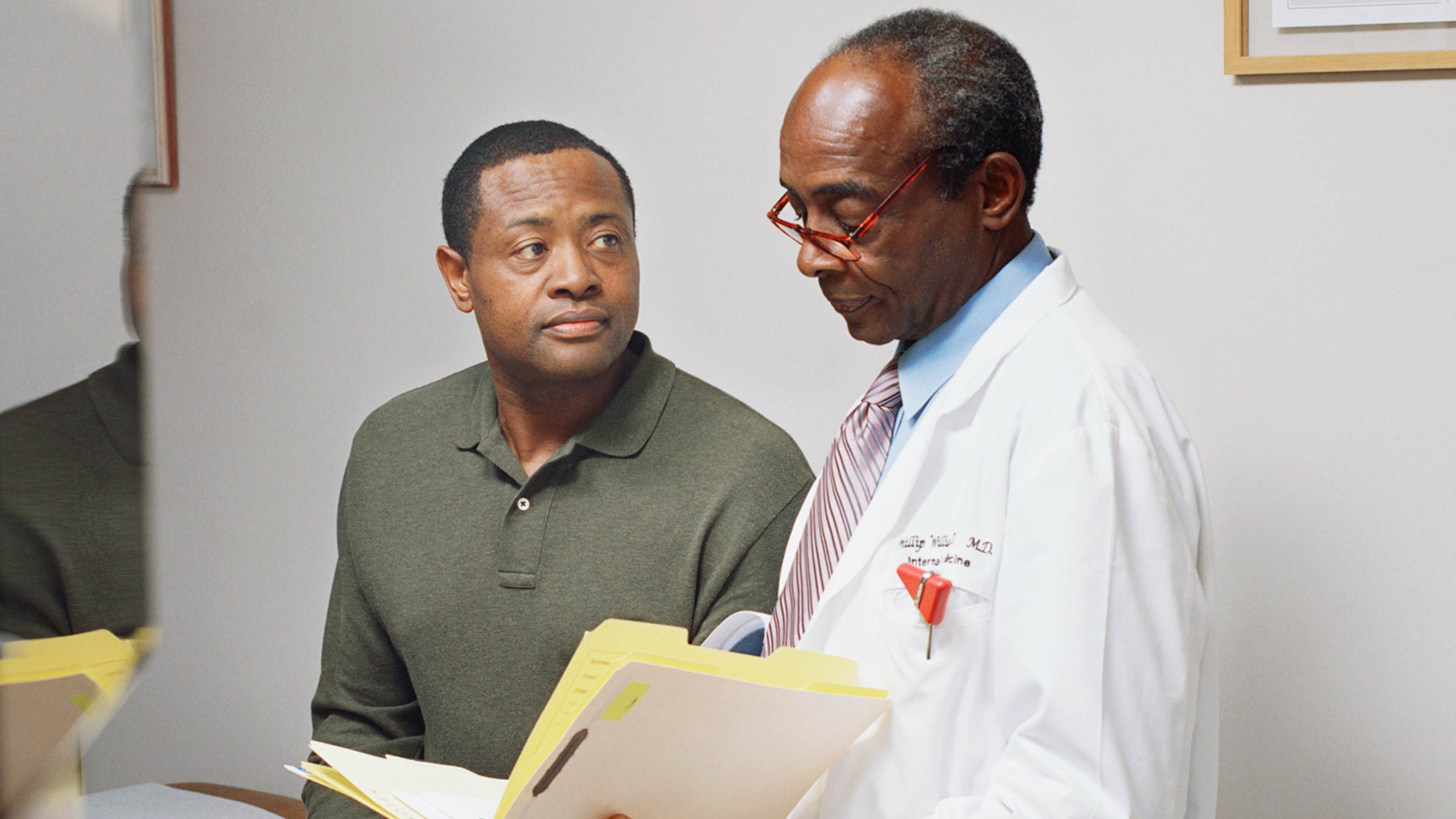
For many men , a visit to the urologist conjures dread. But despite the perceived unpleasantness, there are vital reasons to have a regular urology exam.
Prostate cancer affects 1 in 8 American men and is the second-most-common form of cancer in males, according to the American Cancer Society. The good news: It is treatable, especially if caught early. More than 3 million men in the United States are alive today after a prostate cancer diagnosis.
If fear of the exam is what is holding you back, here are some answers to common questions that might set your mind at ease.
What does a standard urology exam entail?
Along with a general exam, a urological exam generally consists of examination of the pelvic and genital areas. You would be asked to undress and given a gown to wear. For a man, we would examine the penis, including exposing the head of the penis if someone is uncircumcised, looking for any abnormalities of the urethra. A urologist would check for any masses on the testicles. You may also need a prostate exam, which is when your doctor places a gloved finger in the rectum to check for abnormalities in the prostate.
What would you say to a patient who is embarrassed about having the exam?
Urologists look at patients’ genitals all day, so we have seen it all. There is no reason to feel embarrassed or hesitant to get the exam. The main focus during the exam is to locate any areas of medical abnormalities.
What are the most common questions you receive from patients?
As a sexual health specialist , I most often see patients for erectile dysfunction and low testosterone, so most patients come to me looking for the little blue pill — Viagra. I always tell people the best way to get your erections stronger and improve testosterone levels naturally is to stay physically active — especially more high-intensity exercises that raise the heart rate.
What questions should a patient expect to answer?
You will be asked some basic questions about your medical history, as well as more detailed questions about your symptoms, such as your sexual health history, erectile function and libido. If you are seeing a urologist for urinary symptoms, you will be asked details about that, including if you have blood in your urine, if you feel like you have to urinate all the time or whether you have urinary leakage.
What are the most common diagnoses you find in patients?
As a sexual health specialist, I see erectile dysfunction , low testosterone and male infertility.
One of the most surprising things I find in many patients is Peyronie’s disease — penile curvature that develops due to trauma. This is quite common but rarely talked about. Patients who come in for this often have never heard of it, and many of them think they are the only person who has this.
This disease causes painful erections, and many men opt not to treat it out of a sense of shame. But if you suspect you have it, early treatment can help limit or improve symptoms. Peyronie’s disease generally does not go away on its own, so please talk to a urologist if you notice any symptoms.
Time to schedule your urology exam?
The Ohio State urology team provides expert, compassionate care.

- Erectile Dysfunction ,
- Ohio State Wexner Medical Center ,
- Peyronie's Disease ,
- Prostate Cancer ,
- Prostate Cancer Prevention ,
- Urologist Exam
- Sexual Health
Related websites
Articles on health.

Uterine fibroids can be treated — even without losing your uterus
By Amber Bondurant-Sullivan, MD, Mina Makary, MD
If you have uterine fibroids and they’re causing you problems, you have many options for treatment, including those that spare your uterus.

Is it asthma or a vocal cord dysfunction?
By Laura Matrka, MD, Jonathan Parsons, MD, MSc
Vocal cord dysfunction happens when your vocal cords don’t open all the way. It’s often mistaken for asthma. Ohio State experts explain the condition and how a special clinic helps.
Should a preventive full-body MRI be considered for screening?
By Mina Makary, MD
How deep brain stimulation is used to treat Parkinson’s, epilepsy and other disorders
By Brian Dalm, MD
Could radon gas in your basement or child’s school increase your family’s lung cancer risk?
By Amanda Harper
Get articles and stories about health, wellness, medicine, science and education delivered right to your inbox from the experts at Ohio State.
Required fields
Tell us more about yourself
By clicking "Subscribe" you agree to our Terms of Use . Learn more about how we use your information by reading our Privacy Policy .
Parkview Archbold
121 Westfield Dr. Archbold, OH 43502-1061 419-445-4415
Parkview Bryan Hospital
433 W. High St. Bryan, OH 43506-1690 419-636-1131
Parkview Montpelier Hospital
909 E. Snyder Ave. Montpelier, OH 43543-1251 419-485-3154

What to Expect on Your First Visit to a Urologist
Visiting a urologist.
Going to your first appointment at a urologist’s office can be nerve-wracking when you don’t know what to expect. Preparing ahead of time and understanding possible procedures can help ease your mind and create a better, more informative appointment with your doctor.
Before meeting with your urologist, you may be asked to:
- Prepare a list of medications, vitamins and supplements you currently take
- Complete paperwork regarding your past medical history and current symptoms
- Give a urine sample, so come with a full bladder!
Once you meet with your urologist, you can discuss your symptoms. During the appointment, your doctor may want to perform the following:
- Physical Exam – Depending on your symptoms, your doctor may perform a physical exam. For men, a doctor may perform a digital rectal exam (DRE); for women, a doctor might complete a pelvic exam.
- Tests – It might be necessary for your doctor to order tests pending your symptoms and condition. Some standard tests your urologist might order include blood tests, urine tests or swabs to search for infections.
- Cough Test – Your doctor may perform a cough test for those with urinary incontinence. This test is used to search for leakage from the urethra.
Understanding what to expect at your first appointment with a urologist can help ease your mind and better prepare you for a successful appointment. Working with your urologist, you can identify your symptoms and begin a treatment plan for recovery.
Quick Links
- Urologist - Scott Shie, MD
- Urologist - Nicholai Kiehl, MD
- Brandi Alwine, PA-C - Physician Assistant in Urology
- Urology at Archbold Medical Center
- 10 Signs You Need to See a Urologist
CHWChospital.org is moving!
With our transition to Parkview Health, this website will soon redirect all visitors to Parkview.com. There you will find the same resources and services you are used to , in addition to the full range of offerings from Parkview.
Visit Parkview.com

Ph: 602.264.0608 | Fx: 602.234.0417
What Does a Urologist Do on the First Visit?
Urological health disorders differ in men and women, but difficulty fully emptying the bladder on urination is the foremost reason patients seek input from a urologist.
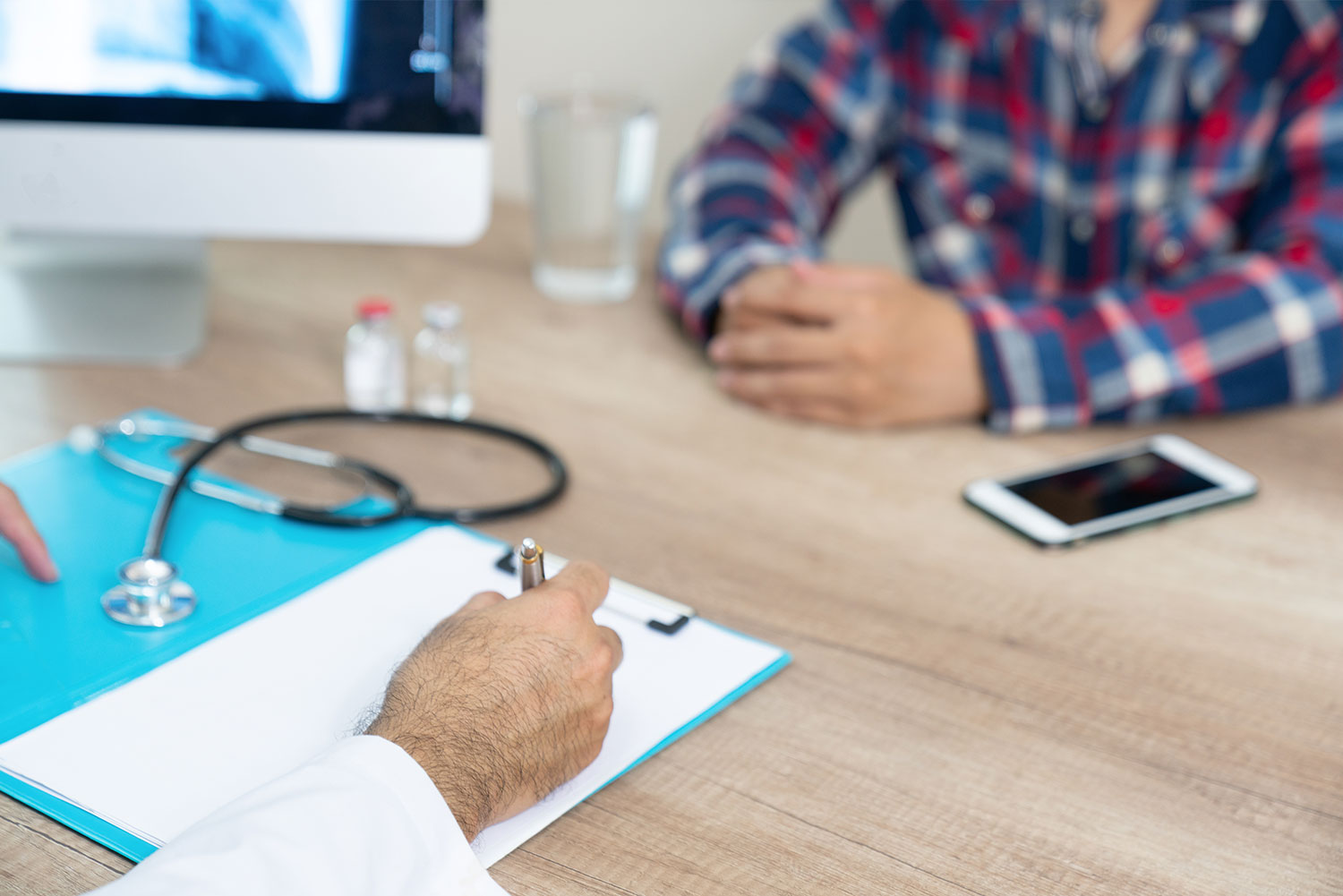
Prostate disorders can cause this symptom in men, but its cause in women is more likely to be a bladder, ureteral, or kidney disorder. Physicians specializing in urology are trained to treat health disorders affecting the urinary tract (including bladder, kidney, and prostate cancer), and are called urologists .
According to study findings published in the Journal of Clinical Oncology on the comparative impact of urology care on urologic cancer mortality, the presence of a urologist in a specific US geographic area was associated with lower mortality for urologic cancers in that geographic area. Affiliated Urologists treats patients with a wide range of urological disorders, and has offices in Phoenix, Scottsdale, and Biltmore.
Gender-Based Risk for Bladder and Other Urological Cancers
The American Cancer Society reports that bladder cancer is the fourth most common cancer in men (and women are three times less likely than men to develop bladder cancer). However, kidney cancer is among the 10 most common types of cancer in both males and females. Urological cancers are also more likely to develop in adults aged 50 and older.
Meanwhile, a research article published in 2019 concluded a link between the following benign urological conditions and urological cancer:
- Peyronie’s Disease;
- Cryptorchidism;
- Hypospadias;
- Male infertility
Benign Prostate Disorders and Prostate Cancer in Men
Older age and the presence of circulating androgens are the only risk factors linked to Benign Prostatic Hyperplasia (BPH) – which is more commonly referred to as an enlarged prostate. Noted by the National Institute of Diabetes and Digestive and Kidney Diseases (NIDDK) is that BPH affects around 50 percent of men aged 51-60, and around 90 percent of men aged 80 and older. (Prostate cancer is also most frequently diagnosed in men aged 50 and older.)
A high PSA test result may suggest prostate cancer, but it does not necessarily mean that a man actually has prostate cancer. While a positive biopsy result is the usual way that prostate cancer is diagnosed, the disease progression is usually 20 years or more to a terminal phase – so no particular treatment may be necessary in elderly men who are diagnosed with prostate cancer.
Interstitial Cystitis in Women
Interstitial cystitis is more common in women than men, and affects nearly 6 percent of all women in the US (per the Interstitial Cystitis Association ). Symptoms include a persistent urge to urinate, feeling of bladder pressure (and/or bladder pain), and sometimes significant pelvic pain in afflicted women. The Mayo Clinic notes that it can have a prolonged impact on a woman’s quality of life, and is usually diagnosed in women aged 30 and older.
Treatment may include any (or all) of the following:
- Oral medications;
- Medications directly-instilled into the bladder;
- Physical therapy;
- Nerve stimulation;
How Urologists Determine an Individual Treatment Plan
The first visit to a urologist begins the process of determining the cause and best treatment course for the urological condition. Typically, the urologist will initially review the patient’s full medical history, and especially in relation to past urological issues. Then, diagnostic tests (such as urine and blood tests, and scans) are often performed. Once the results of the diagnostic tests are available and a diagnosis has been determined, a patient’s treatment action plan can be developed.
Our physicians at Affiliated Urologists provide comprehensive urological medical care, and are here to aid you in achieving improved health through urological diagnosis and treatment.
Affiliated Urologists is an award-winning practice recognized both locally and nationally that has provided service to patients in Phoenix, Scottsdale, and surrounding communities in the Valley, for over 40 years. The physicians emphasize top-of-the-line comprehensive urological care and strive to deliver the highest outcomes for patient satisfaction. To make an appointment, call 602-264-0608 or contact us for instructions on scheduling an appointment.
The advice and information contained in this article is for educational purposes only, and is not intended to replace or counter a physician’s advice or judgment. Please always consult your physician before taking any advice learned here or in any other educational medical material.
New patients are always welcome.
New Patient Forms
Accepted Insurance Plans

Newsletter Sign Up
Newsletter signup.
Sign up for our Newsletter to receive updates and information from Affiliated Urologists!

404.586.4570 | Fax: 678.666.5201
- Mission and Values
- Leadership Team
- Advanced Surgery Centers
- Cristina Baldassarri PA-C
- Lucy Choi PA-C
- Austin Durden PA-C
- Hayden Drake PA-C
- Erin Favinger FNP
- Steven Jurczak, PA-C
- Anna McMaster, PA-C
- Sydney Moore PA-C
- Sarah Nayebosadri PA-C
- Shelby Shimberg PA-C
- Mary Peabody PA-C
- Zohra Sayani – FNP
- Jessica Sheppard PA-C
- Sara Stephano PA-C
- Ian Thomas PA-C
- Alpharetta / Roswell
- John’s Creek
- Lawrenceville
- Marietta / Kennesaw
- Sandy Springs
- Men’s Health
- Women’s Health
- Atlanta Kidney Stone Center
- Nerve Stimulation
- Penile Implant (IPP)
- Robotic Surgery
- Urolift for BPH
- Advanced Blogging
- Clinical Trials
- Insurance and Financial Assistance
- Online Bill Pay
- Patient Portal
- Physician Webinars
- Pre Surgery Registration
- Surgery Pricing
- Schedule Online
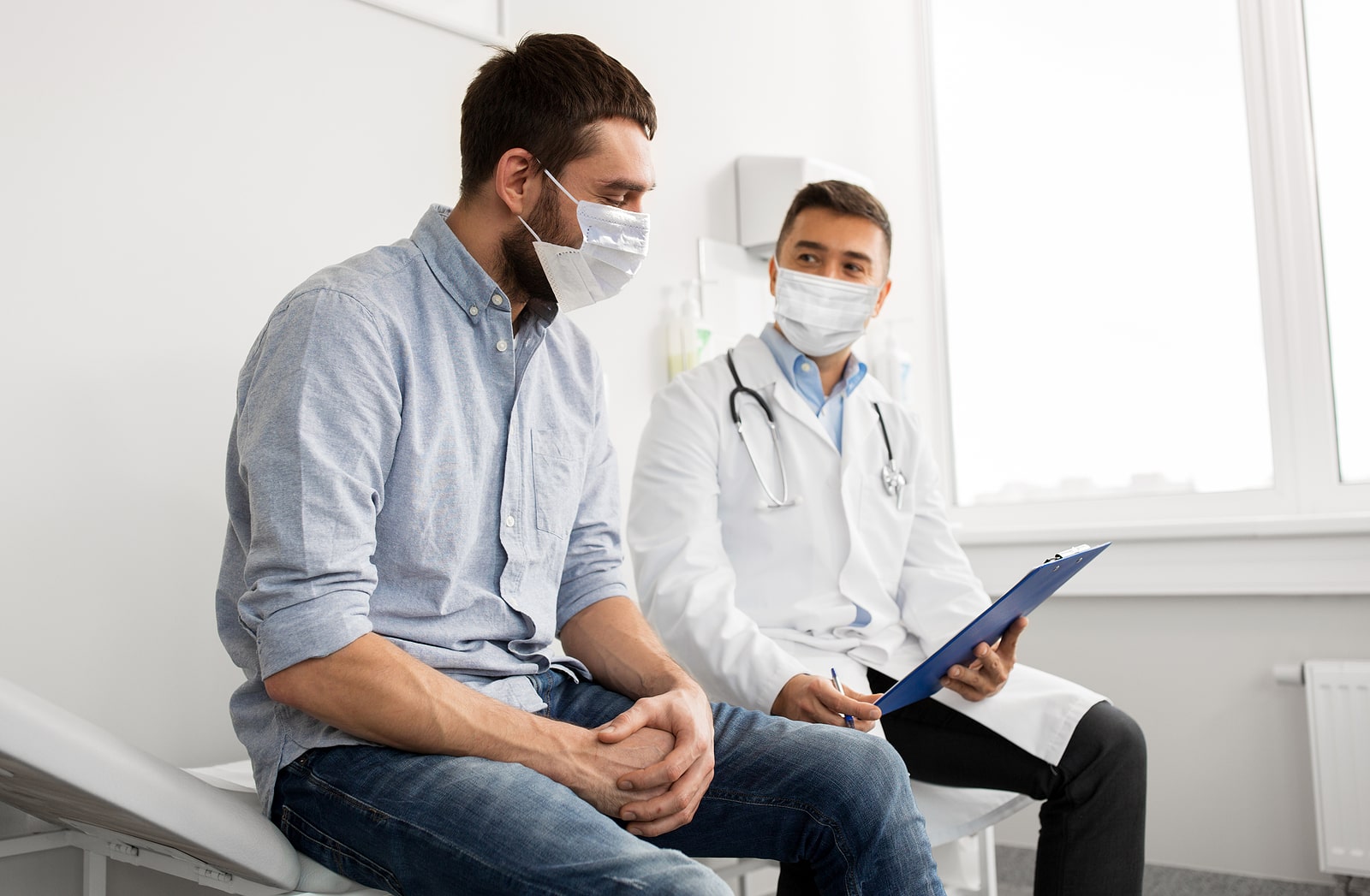
Any man 40 or older should add one more item to his to-do list: make a visit to the urologist. For men, this is an important step in their overall health journey, as a urologist can identify and treat several key issues that affect long-term health.
In the U.S., approximately 1 in 9 men will be diagnosed with prostate cancer. In addition, testicular cancer is the most common cancer for men under 35. Both issues fall under the care of a urologist.
Find out more about urology issues in males and what you can expect after you make an appointment.

What is a urologist?
A urologist deals with health issues of the male urinary tract – the genitourinary area – and the male reproductive system. They are trained to deal with diseases that involve the kidneys, adrenal glands, bladder, and male reproductive organs. Men’s sexual health plays a large role in the field of urology, including erectile dysfunction and low testosterone. Urologists also help with cancers of the male reproductive system.

What are some examples of urologic diseases or issues?
- Prostate enlargement: The prostate grows every day of your life. This growth causes narrowing of the urethra and blockage to urine flow. If you find yourself going to the bathroom more frequently or in the middle of the night, this could be the issue.
- Kidney stones : This painful issue is caused from either dehydration, diet problems or too much calcium excretion by the kidneys. Back or flank pain, nausea and blood in urine are a couple warning signs.
- Urinary leakage: Incontinence is a serious bladder issue. An overactive bladder muscle, a weak sphincter or an overflowing bladder may cause unfortunate episodes of leakage.
- Low testosterone : As men grow older, testosterone levels naturally decrease. But too much loss leads to hypogonadism, which is defined as testosterone levels below 300 nanograms per deciliter. Low sex drive and fatigue are warning signs.
- Overactive bladder (OAB) : More than 20 million struggle with frequent urination , rushing to the bathroom and trips to the bathroom at night. The usual cause is the bladder spasming while filling with urine.
These issues and more can be discovered and treated through urology tests. Male patients have different internal systems then female patients so make sure you find a urologist that specializes in men’s health.
What does a urologist do on the first visit?
During your first appointment with the urologist, several things will happen. The information below will give you an idea of how to prepare for a urology appointment:
- Urine sample: The doctor will want a specimen to test, so make sure you don’t arrive with an empty bladder.
- Paperwork: To get an idea of your symptoms or concerns, you may have to fill out questionnaires or other paperwork upon your arrival.
- Medical history: Knowing your history will give the doctor a better idea of what may be happening. Prepare to share all the medications you actively take.
What will happen during the exam?
The doctor will perform a male genitourinary exam during your first appointment. That is a complete examination of the urinary tract region. The physician will perform a genital exam and a digital rectal exam to explore the prostate. The urologist may evaluate other areas as well. These tests are designed specifically for males. Urology exams are generally quick and painless.
Your doctor may want to do additional tests to check testosterone levels, kidney functions or blood counts. In addition, they may require imaging studies to check the kidney and/or prostate. This will all be discussed with you after the initial exam.
What should I look for in a men’s urologist near me?
Finding the right doctor can be difficult. You want to make sure you have an experienced, certified practice on your side, one that offers same-day appointments in case of emergency, advanced technology and techniques to limit side effects, and world-class facilities that allow you to have a pain-free experience. Doctors who are well versed in urology issues help ensure your specific case will be handled by a professional.
If you are concerned about any urologic issues, consult an expert. Your first exam can go a long way to determine if there is a problem and what steps you can take to fix it. Many men deal with these issues and being proactive can help you avoid any long-term health problems.
RELATED ARTICLES
Our mission.
Our mission is to better human lives through personalized healthcare and innovation.
We are committed to providing compassionate and extraordinary care by acting with attention, joy and authenticity.
We advance healthcare by aligning patients, providers and payers.
We aim to lead the way by way of innovation, excellence and the drive to change and make a lasting difference.
OUR PHILOSOPHY
Patient experience is our top priority. We show this by operating with integrity, listening, and building trust with our patients and one another.
We are committed to teamwork, family spirit and embracing each other’s resourcefulness, resilience and dedication.
Make An Appointment Today

4 Things to Expect at your First Urologist Appointment
Any “first” can bring feelings of uncertainty and trepidation, and a first visit to the urologist is no different. Whether your primary care physician has referred you, or you’ve decided to make an appointment on your own, knowing what to expect during your first urologist visit can go a long way in easing the fear of the unknown.
In most cases, the first appointment is a chance for your new specialist to learn all they can about your medical history and the symptoms you are experiencing. Take the mystery out of your first visit by knowing what you can expect:
- You’ll be asked to provide a urine sample , so try not to show up to the office with an empty bladder. Some urological conditions may prevent you from being able to hold urine, so inform the office staff when you are ready to provide a sample.
- Be prepared to share your detailed medical history during your first visit. You may be asked to fill out questionnaires that help assess the nature of your symptoms, give information on the medical histories of family members, and provide a list of all current medications, among other things. Whenever possible, complete required forms ahead of time and be prepared with the information you’ll need to make the most of your first appointment.
- Your urologist will perform a physical exam . The exam will concentrate on the genitourinary system – including the kidneys, urinary bladder, adrenal glands, urethra, and reproductive organs – but can also include other systems as well. Depending on your symptoms, additional tests may also be performed to help your urologist make their evaluation.
- Following the exam, your urologist will discuss a treatment plan with you. This might mean prescribing medications, additional testing, or recommending a surgical procedure. You may want to consider preparing a list of questions to bring with you to discuss.
Don’t let the fear of the unfamiliar keep you from taking charge of your health. With these expectations in mind, you’ll be ready to face your first urologist appointment without any doubts.
Contact Scott D. Miller, MD
2500 Hospital Boulevard, Suite 290, Roswell, Georgia 30076, Atlanta Area: 470-956-4230, Fax: 770-410-4985

- TESTIMONIALS
- OUR FACILITIES
- KIARASH MICHEL, M.D.
- DINO DECONCINI, M.D.
- ROBERT SANFORD, M.D.
- JEANNIE SU, M.D.
- ALEX NOURIAN, M. D.
- ANTHONY ALLEMON, PA
- MAZYAR MOTAHEDEH, PA-C
- ED Treatment
- Los Angeles Shockwave Therapy for ED
- PULSE WAVE THERAPY
- PEYRONIE’S DISEASE
- ERECTILE DYSFUNCTION
- MALE ENHANCEMENT for PENIS ENLARGEMENT
- PEARLY PENILE PAPULES (PPP)
- LOW TESTOSTERONE
- CIRCUMCISIONS
- MICROSURGICAL VARICOCELE TREATMENT
- SCROTOPLASTY
- PENIS PUMPS
- PREMATURE EJACULATION
- TESTICULAR CANCER
- Vaginal Rejuvenation Before/After
- THERMIVA VAGINAL REJUVENATION
- RECURRENT UTI IN WOMEN
- LABIAPLASTY
- VAGINAL DRYNESS
- ANORGASMIA – DIFFICULTY ORGASMING
- Vagina Looseness
- LOW SEXUAL DESIRE TREATMENT
- VAGINAL COSMETIC TREATMENTS
- Vaginoplasty Surgery
- VAGINAL RECONSTRUCTION OPTIONS
- PELVIC PROLAPSE
- URINARY INCONTINENCE
- VAGINAL ATROPHY
- INTERSTIM NEAR ME FOR INCONTINENCE
- INTERSTITIAL CYSTITIS
- Benign Prostatic Hyperplasia BPH
- REZUM PROCEDURE
- AQUABLATION
- PROSTATE ARTERY EMBOLIZATION
- PROSTATE CANCER TREATMENTS
- PROSTATE SPECFIC ANTIGEN (PSA)
- Signs of Prostate Cancer
- PROSTATE CANCER STAGING
- MRI FUSION BIOPSIES
- HORMONAL BLOCKADE THERAPY
- RADIATION FOR PROSTATE CANCER
- ROBOTIC SURGERY
- ROBOTIC PROSTATECTOMY
- WHY SEE A UROLOGIST
- URINARY TRACT INFECTION (UTI)
- FEMALE UROLOGY
- Treatments for Bladder Cancer
- BLADDER STONES
- MALE INCONTINENCE
- SEXUALLY TRANSMITTED DISEASES
- Kidney Stone Symptoms
- KIDNEY CANCER
- PELVIC PAIN
- BOTOX FOR INCONTINENCE
- PTNS FOR OVERACTIVE BLADDER (OAB)
- ADRENAL TUMORS TREATMENTS
- BIOIDENTICAL HORMONE REPLACEMENT THERAPY (BHRT)
- FREQUENT URINATION
- Urology Clinical Trials
- NEW PATIENT PACKET | Urologist
What does a Urologist Do?
Urologists are physicians that treat urological conditions of the urinary tract in both men and women, including the bladder, urethra, ureters, and kidneys, as well as the reproductive system in men including the penis, prostate, and testicles. They also treat STD’s as well as offer sexual health medicine treatments such as non surgical vaginal rejuvenation , penile injections for growth , male enhancement treatments , and pulse wave therapy for ED . Some urologists specialize in surgery, such as robotic surgery for prostate cancer while others offer focal therapy for prostate cancer such as the TULSA procedure and HIFU . We’ll explain the difference between urology and nephrology, and highlight key symptoms that should prompt a visit to a urologist. Comprehensive Urology strives to be the best urology clinic in Los Angeles and we’re here to serve your needs. Come book an appointment online today.
Table of Contents

Kia Michel, MD
Written by Dr. Kia Michel, a board certified urologist, surgeon, and founding member of Comprehensive Urology in Beverly Hills, Los Angeles. Dr. Michel's expertise includes focal therapy (HIFU/TULSA), prostate cancer treatment, robotic surgery, and male enhancement treatments such as Shockwave Therapy for ED and penile injections.
Why would you go to a urologist?
Most people are either referred to a urologist by their primary care doctor, or they decide to seek out a urologist due to concerning symptoms. Some of the most common reasons to see a urologist can include persistent urinary tract infections (UTIs), incontinence, or urinary urgency, as well as problems with urination, such as blood in the urine or pain during urination. In men, a urologist can address conditions related to the prostate, such as an enlarged prostate or prostate cancer, sexual dysfunction, infertility issues, and sexually transmitted disease or infection. If you’re looking for a urologist, Los Angeles is home to one of the best urological centers.
Top Reasons you might see a urologist Los Angeles:
It’s highly recommended that you b ook an appointment with a Los Angeles urologist if you have the following symptoms:
Blood in your urine (hematuria): This may be a sign of various conditions, including urinary tract infections, kidney stones, or more serious issues such as bladder or kidney cancer.
Frequent or urgent need to urinate : These symptoms can indicate a urinary tract infection, an overactive bladder, or conditions like interstitial cystitis or prostate enlargement in men.
Pain during urination (dysuria) : This symptom can indicate a urinary tract infection, bladder infection, kidney stone, or other urologic condition.
Pain or discomfort in the lower abdomen or back : These could be signs of conditions like kidney stones or urinary tract infections.
Difficulty starting or maintaining urination : This may be a symptom of an enlarged prostate, a urinary tract infection, or a nerve problem.
Urinary incontinence or leakage : This can be a symptom of a variety of conditions that a urologist can help to diagnose and treat.
Decreased sexual desire or issues with sexual performance : For men, these could be signs of conditions like erectile dysfunction, which a urologist Los Angeles can help to address.
Testicular pain or swelling : These symptoms can indicate conditions like epididymitis, orchitis, varicocele, or testicular torsion, which need immediate medical attention. They could also be signs of testicular cancer.
Abnormal urine color or strong-smelling urine : These symptoms can be a sign of a urinary tract infection, kidney stone, bladder infection, or other urologic condition.
Remember, while this list includes common symptoms that urologists treat, it is not exhaustive. If you have any concerns about your urological health, it’s always best to consult with a healthcare provider.
What Special Procedures can a Urologist Perform?
- Shockwave Therapy for Peyronie’s Disease
- Shockwave Therapy for Erectile Dysfunction
- BOTOX Penile Injections
- PRP Penile Injections
- ThermiVa Vaginal Rejuvention
- ThermiVa for Recurrent UTIs
What’s the Difference between urology and nephrology?
Urology and nephrology are two distinct medical specialties, each focusing on different aspects of human health. Both are important in the diagnosis and treatment of diseases related to the urinary system, but the specifics of what they cover differ.
Urology is a surgical specialty that deals with diseases of the male and female urinary tract and the male reproductive system. Urologists in urology clinic are able to resolve some problems with the kidneys; however, they tend to focus on the lower ports of the urological tract, such as the bladder, urethra, and male reproductive system. Urologists diagnose and treat conditions such as urinary tract infections, bladder and kidney stones, incontinence, benign prostatic hyperplasia, prostate cancer, bladder cancer, kidney cancer, testicular cancer, and erectile dysfunction. Urologist Los Angeles are trained to perform surgical procedures for treatment of these diseases, such as removing kidney stones, treating cancers, and repairing congenital abnormalities.
Nephrology , on the other hand, is a subspecialty of internal medicine, and a nephrologist deals with the diagnosis and management of diseases of the kidney. Nephrologists treat conditions like chronic kidney disease, acute kidney injury, glomerular diseases, tubulointerstitial diseases, kidney and urinary tract infections, mineral metabolism disorders, and hypertension related to kidney disease. They also manage patients on dialysis and evaluate patients for kidney transplantation.
While there is some overlap in the areas that urologists and nephrologists deal with (specifically concerning the kidneys and urinary tract), their approach and training are different. Urologist Los Angeles are surgical specialists, while nephrologists are medical specialists. If a kidney disease requires surgical intervention, a nephrologist would refer the patient to a urology clinic.
For more information about urologist Los Angeles, Los Angeles physician Dr. Kia Michel is a trained urological specialist. Rea ch out to his team today.
What conditions do urologists treat?
Urologists treat:
Recurrent Urinary Tract Infections (UTI’s)
Loss of bladder control called urinary incontinence
Prostate Cancer
Erectile Dysfunction (ED)
Bladder and Kidney Cancer
Kidney Stones
Bladder Prolapse
BPH Benign prostatic hyperplasia
Pelvic Pain
Cosmetic Penile Procedures like removing Pearly Papules and Adult Circumcisions
Penile Enlargement and Male Enhacement
What does a urologist do?
A urologist is a physician who specializes in diseases of the urinary tract and the male reproductive system. The urinary tract includes kidneys, bladder, ureters, and urethra. It also involves the male reproductive organs like the testes, prostate, seminal vesicles, and penis.
Here’s a detailed breakdown of what a urologist typically does:
Diagnosis : Urologists diagnose various conditions related to the urinary and male reproductive system. These conditions can range from urinary tract infections and kidney stones to prostate cancer and male infertility. Diagnostic tools used by urologists can include urine tests, imaging tests like ultrasounds or CT scans, cystoscopy (where a thin camera is inserted into the urethra), and biopsy among others.
Treatment : Urologists can provide medical treatment for various conditions. This can range from prescribing antibiotics for a urinary tract infection, medication for overactive bladder or enlarged prostate, urologic oncology and Focal Therapy, to hormone therapy for certain types of cancers.
Surgery : As surgical specialists, urologists are trained to perform a variety of procedures. They may remove kidney stones, treat cancers of the bladder, kidneys, or prostate, perform kidney transplantation, perform vasectomies or reverse them, repair congenital abnormalities, perform minimally invasive surgery, including robotic- assisted sur gery , and more.
Counseling and management : Urologists also counsel patients on managing chronic conditions, such as kidney disease or recurrent urinary tract infections. They provide education on disease prevention and lifestyle modifications that can improve urological health.
Specialized care : Some urologists also specialize in specific sub-disciplines. These can include pediatric urology (urological issues in children), urologic oncology (urological cancers), male infertility and sexual medicine, and more.
So, in essence, a urologist plays a vital role in diagnosing, treating, and managing a wide variety of urological and male reproductive health conditions. If you’re experiencing symptoms related to these areas, a urologist is typically the type of specialist you would seek out.
What are the Procedures that a Urologist can perform?
Urologists can perform a wide range of procedures for diagnosis and treatment, including:
Prostate biopsy, including an MRI Fusion Prostate Biopsy: A Prostate biopsy removes small pieces of prostate tissue to send to a pathologist to rule out prostate cancer.
Urodynamics Studies: Allow a urologist to example the residual urine left in the bladder after urinating.
UroCuff : A test that evaluates your urethra and bladder functions during urination.
Cystoscopy : Using a telescopic device called a cystoscope a urologist is able to see inside your urethra and bladder.
Ureteroscopy: Much like the cystoscopy, a urologist can use this device to see inside a woman’s ureters and kidneys.
Nephrectomy: This is surgery can remove part or all of a kidney if there is cancer.
Vasectomy: To prevent pregnancy, the tubes that carry sperm are cut.
Los Angeles Urology experts at Comprehensive Urology are trained to perform these procedures, and more.
Do Urologists do STD Tests?
Yes, urologists can perform an ST D test or STI test for sexually transmitted diseases (STDs) or sexually transmitted infections (STIs). Urologists are ideal physicians for STD’s because they can rule out whether you have an STD or another condition that aren’t STD’s like UTI’s and prostatitis. Book an appointment if you’re experiencing symptoms such as pain during urination, abnormal discharge, genital sores, or other symptoms that might indicate an STD or STI, a urologist can help identify the issue. Urologists also provide counseling and education regarding safer sexual practices to prevent STDs or STIs. Beverly Hills urologist Kia Michel, MD, and his team provide discreet, reliable STD and STI testing services.
Do Urologists Treat STD’s (STI’s)?
If you’re experiencing concerning symptoms, you may ask, “can urologist treat STDs?” Urologists can treat certain STDs and STIs. For example, they can provide treatment for infections such as gonorrhea and chlamydia, which can affect the urinary tract. For more systemic or complicated infections, like HIV, a urologist would most likely coordinate care with other specialists, such as infectious disease doctors.
What can you expect during your visit to a urologist?
During your first visit to a urologist, you can typically expect several steps:
Medical History Review : The urologist will review your medical history, including current symptoms, past illnesses, and any previous surgeries. They will also ask about your lifestyle habits, such as smoking or alcohol use, and family medical history, especially concerning any urological conditions.
Physical Examination : Depending on your symptoms, the urologist may conduct a physical examination. This might include a genital and prostate exam for men, and a physical exam for women that could include a pelvic exam. They may also examine other areas of your body as appropriate.
Diagnostic Tests : Depending on your symptoms, the urologist may order further diagnostic tests to better understand your condition. These could include urine tests (urinalysis), blood tests, imaging tests (like ultrasounds or CT scans), PSA Prostate Specific Antigen tests, STD testing and STI testing , prostate biopsy, imaging (such as ultrasound or MRI), or a cystoscopy, where a small camera is inserted into the bladder through the urethra. PCR testing for UTI may also be performed for a higher accuracy diagnosis than cultures.
Discussion of Findings and Treatment Options : Based on your medical history, physical exam, and any test results, the urologist will discuss their findings with you. They will explain any diagnoses they’ve made, what they mean, and potential treatment options. They will also answer any questions you may have about your condition and treatment.
Follow-up and Next Steps : Depending on your condition, the urologist may prescribe medication, suggest lifestyle changes, schedule a follow-up appointment, or arrange for additional tests or consultation with other specialists.
If you’re ready to see a urologist, Beverly Hills urological specialists at Comprehensive Urology are standing by. Remember that it’s important to come prepared for your first appointment. Bring any relevant medical records, write down your symptoms and questions you may have, and make sure to fully understand any instructions or information your urologist provides.
What are red flags in urology?
There are several signs and symptoms that should trigger a visit to a urologist, including:
Blood in urine (hematuria): This may indicate a variety of conditions, from kidney stones to urinary tract infections, or even more serious conditions like bladder or kidney cancer.
Painful urination or persistent urge to urinate : These symptoms may suggest a urinary tract infection, bladder infection, or a condition such as interstitial cystitis.
Persistent lower back, lower abdomen, or pelvic pain : These symptoms can point to a variety of urological conditions, including kidney problems.
Urinary incontinence or loss of bladder control : This is often a sign of an underlying condition that a urologist can help diagnose and treat.
Erectile dysfunction or painful ejaculation in men : These are often urological issues and can indicate conditions ranging from prostate problems to vascular disease.
Swelling or lumps in the testicles : This can be a sign of testicular cancer or other conditions affecting the testicles.
It’s always essential to consult with a healthcare provider if you’re experiencing any of these symptoms, as early detection and treatment often lead to better outcomes. If you need urology, Beverly Hills urologist Dr. Kia Michel is ready to see you today. Don’t spend any longer worrying about your symptoms; it’s time to take back control of your health with Comprehensive Urology at your side. Learn more about urologists near me today.
COMPREHENSIVE UROLOGY
+1 (310) 278-8330.
- KIA MICHEL, M.D.
- ROBERT S. SANFORD, M.D.
- DINO T. DECONCINI, M.D.
- ALEX NOURIAN, M.D.
© 2023 Kia Michel, MD All Rights Reserved. Terms and Conditions. Privacy Policy.
The information available on this web site is provided for informational purposes only. This information is not intended to replace a medical consultation where a physician’s judgment may advise you about specific disorders, conditions and or treatment options. We hope the information will be useful for you to become more educated about your health care decisions.
Website Design by G. K. Hunter at Kindred House Media

Age Verification
You Must be 18 years or older to access this page.
Are you at least 18 years of age?
You must be logged in to post a comment.
Best Ambulatory Surgery Centers
Also known as outpatient surgery centers and same-day surgery centers. Discover top-rated Ambulatory Surgery Centers near you for a variety of common surgical procedures.
Ambulatory Surgery Centers 101
What you need to know before your procedure
The cost of ASC surgery will vary depending on the type of procedure you are having and your insurance coverage. However, ASC surgery may be less expensive than hospital surgery.
Because ambulatory surgical centers specialize in same-day procedures, you can save time by choosing these facilities for select procedures and screenings and return to your daily activities quicker.
Back Home Same Day
Outpatient facilities may be quieter and calmer than inpatient facilities. An ASC close to your home may be more conveniently located than any hospital.
More About Ambulatory Surgery Centers
Ambulatory surgical centers are freestanding outpatient health care facilities that specialize in providing same-day surgical and diagnostic procedures. These facilities offer a range of outpatient services – such as colonoscopies, hip and knee replacements and cataract surgery — that do not require an overnight stay, allowing patients to safely and quickly return to their daily activities. Ambulatory surgery centers may offer patients certain advantages over traditional hospital-based surgical procedures, including shorter wait times and lower costs.
Find the ASC That Is Right for You
There are more than 6,000 ambulatory surgical centers nationwide. Unlike hospital-based outpatient surgical centers that operate as part of a larger health care facility and offer a wider range of surgical services for less healthy patients, ambulatory surgical centers are designed specifically for outpatient care and, therefore, can provide a more streamlined, convenient experience with shorter wait times and less cost.
Colonoscopy & Endoscopy
The majority of ambulatory surgery centers in which gastroenterologists practice are single-specialty centers – also known as endoscopy centers – and are designed to cater to patients who require diagnostic or therapeutic procedures for conditions affecting the digestive system. This includes the esophagus, stomach, small intestine, large intestine and any other digestive organ. These facilities offer a wide range of services, including endoscopy, colonoscopy, polypectomy (polyp removal) and other minimally invasive procedures.
- Colonoscopy
- Upper GI endoscopy
See the Best Colonoscopy & Endoscopy ASCs Near You
ASCs Evaluated
ASC Patients
High Performing ASCs
ASC Procedure Types
Orthopedics & Spine
Ambulatory surgical centers provide care for a wide range of orthopedic and spinal surgeries for patients who are in good overall health without complex medical conditions. Orthopedic and spine services can include pre-surgical consultations, advanced imaging (such as MRIs, PET and CT scans), diagnostic assessments and minimally invasive surgical techniques (such as joint replacements and arthroscopies for the hip, knee, ankle, wrist, shoulder and elbow and knee realignment).
- Fracture or dislocation treatment of the arm, wrist and hand.
- Injection for back pain.
- Knee arthroscopy.
- Hip replacement.
- Knee replacement.
- Shoulder arthroscopy/rotator cuff repair.
- Spinal fusion.
- Fracture or dislocation treatment lower leg, ankle and foot.
- Fracture or dislocation treatment knee.
See the Best Orthopedics & Spine ASCs Near You
Ophthalmology
Ophthalmic ambulatory surgical centers offer a specialized, efficient setting for a variety of same-day ophthalmology procedures. These eye care and surgical centers are options for patients who require surgery for eye-related conditions without the need for an overnight hospital stay. Procedures can include cataract surgery, glaucoma surgery, corneal transplants, laser treatments for retinal disorders and corrective laser eye surgery. People experiencing blurred vision, eye pain or changes to the eye due to cataracts, glaucoma, strabismus, amblyopia (lazy eye), retinal issues or other conditions are all good candidates for treatment at an ophthalmic surgery center.
- Cataract surgery with lens implant
- Retinal procedures
- Glaucoma surgery
- Corrective eye surgery, including LASIK
See the Best Ophthalmology ASCs Near You
Urology outpatient services offered at an ambulatory surgery center include surgical treatment for kidney stones , enlarged prostate glands , urinary incontinence, erectile dysfunction , male fertility preservation, prostate cancer and other urology-related health issues . Patients can also expect quick same-day services for diagnostic cystoscopies, ureteral stent removals, bladder Botox injections and vasectomies. Urology outpatient facilities also offer treatments for conditions that do not require surgery, such as urinary tract infections .
- Endoscopy of the urethra and bladder.
- Transurethral surgery (TURP) for enlarged prostate.
See the Best Urology ASCs Near You
How U.S. News Evaluates ASCs
We evaluated nearly 5,000 ambulatory surgery centers for treatment for procedures in four specialty areas: Colonoscopy & Endoscopy, Orthopedics & Spine, Ophthalmology (eye surgery) and Urology. We used three years of Medicare data to evaluate these surgical centers using criteria that includes how successfully they avoided complications, ER visits, unplanned hospitalizations and other undesirable outcomes. While location and cost are always important considerations for patients, quality of care – how well patients who have received treatment have fared – should be an important factor when choosing where to have your outpatient procedure.

Why Trust U.S. News
How we rate Ambulatory Surgery Centers
Facilities evaluated in: Colonoscopy & Endoscopy, Orthopedics & Spine, Ophthalmology, and Urology.
Patients evaluated across 4 specialties.
High Performing recognitions awarded.
Best Ambulatory Surgery Centers by State
- Connecticut
- Massachusetts
- Mississippi
- New Hampshire
- North Carolina
- North Dakota
- Pennsylvania
- Rhode Island
- South Carolina
- South Dakota
- West Virginia
Ambulatory Surgery Centers: What You Need to Know
ASC vs. Hospital Outpatient
Navigating Insurance and Costs at ASCs
How to Prepare for a Colonoscopy
Your Guide to Hip Replacement Surgery
FAQs About Ambulatory Surgery Centers
What is the difference between an ambulatory surgery center and a hospital outpatient department?
Both ambulatory surgical centers and hospital outpatient departments have the same kinds of surgical teams, equipment and licensing requirements. However, they each have their differences, as well.
An ambulatory surgical center is a freestanding health care facility that specializes in providing surgical and diagnostic procedures that do not require an overnight stay. As a result, patients are typically discharged on the same day. Some ASCs can also be owned by or in a joint venture with a hospital or health system.
On the other hand, a hospital outpatient department is part of a larger hospital system and offers a wider range of surgical services and access to broader hospital resources for less healthy patients and those with comorbidities (multiple conditions being treated).
Why are some procedures done in an ambulatory surgery center and not a hospital?
Ambulatory surgical centers specialize in certain surgeries – such as appendectomies, colonoscopies, hip replacements, cataract surgeries and endoscopies – that can be safely performed on appropriate patients without the need to stay overnight for observation at a hospital.
Why choose an ambulatory surgery center over a hospital?
If you require a surgical procedure, such as a knee replacement or cataract surgery, an ambulatory surgical center may be faster and less expensive than in a hospital setting. Because ambulatory surgical centers specialize in outpatient surgeries, they typically have shorter wait times and, therefore, may offer a more streamlined experience. Your health status will help determine whether you are a good candidate to receive care in an ambulatory surgical center.
Do I need a referral for an ASC?
Whether you need a referral to visit an ambulatory surgical center largely depends on your health insurance plan. Many insurance plans, especially HMOs or ones that require pre-authorization for specialized services, require a referral from a primary care physician or a specialist to cover the procedure at an ambulatory surgical center.
Since requirements vary, it’s important to check with your insurance provider to understand your plan’s specific requirements.
How should I choose an ambulatory surgery center for my procedure?
It’s important to talk with your doctor first to help you decide whether you are best suited for undergoing a procedure at an ambulatory surgical center or hospital based on your health status.
If you opt to have a procedure performed at an ambulatory surgical center, take into consideration the facility’s U. S. News quality rating for that specialty, including complication rates, as well as accreditation status, experience and qualifications of the medical staff. In addition, be sure to read other patients’ reviews of their experience (if available) and confirm that the facility accepts your insurance.
Will my insurance cover a procedure at an ambulatory surgery center, and how much should I expect to pay?
Insurance coverage for a procedure at an ambulatory surgical center varies. Whether or not your procedure is covered by your insurance depends on your specific health plan, including whether the facility is within your plan’s network and if the procedure is considered medically necessary.
While most insurance plans – such as Medicare and Medicaid – typically cover procedures at an ambulatory surgical center, the amount of coverage and out-of-pocket costs vary based on several factors, such as deductibles, copayments and coinsurance rates.
It’s best to contact your insurance provider prior to scheduling the procedure to better understand your coverage details, obtain any pre-authorizations and referrals and estimate your expected out-of-pocket expenses.
If paying with an original Medicare plan, you can compare national average prices for ambulatory surgical centers and hospital outpatients departments online using the Medicare.gov’s Procedure Price Lookup tool .
How does the out-of-pocket cost of a procedure at an ASC compare to a hospital outpatient facility?
The total out-of-pocket cost of a procedure at an ambulatory surgical center is generally lower than the same procedure at a hospital outpatient facility. This is largely because ambulatory surgical centers specialize in outpatient care and have lower overhead cost than hospitals, allowing them to provide the same outpatient services at a reduced price.
Patients undergoing eligible procedures generally benefit from these cost savings through lower copayments and coinsurance amounts.
Is rotator cuff surgery outpatient?
Rotator cuff surgery is often performed as outpatient procedures and typically does not require overnight stay in the hospital thanks to minimally invasive surgical techniques, including arthroscopic repair and mini-open repair. However, it’s important to discuss with your orthopedic surgeon about whether the procedure should be performed as an outpatient or inpatient treatment. The final decision will depend on several factors, including your individual health status, the severity of your rotator cuff injury and the complexity of your procedure.
health disclaimer »
Disclaimer and a note about your health ».

Lightning speed and heavy history: What to expect at F1's 2024 Emilia-Romagna Grand Prix
F ormula 1 returns from its two-week absence on Sunday with a perennial favorite: the Emilia-Romagna Grand Prix at Imola. It's F1's first visit to Imola since 2022.
Nestled in the Italian foothills between Bologna and San Marino, Imola is one of the most scenic stops on the F1 circuit. It's considered a home race for Racing Bulls, whose factory is located a few miles away in Faenza, and Ferrari, whose founder Enzo was born in the region.
But while Imola is known for its beauty and racing history, it's been marked by tragedy during its 44 years in F1. In 1994, Austrian driver Roland Ratzenberger and Brazilian driver Ayrton Senna were killed just one day apart following heavy crashes on the Imola circuit.
Ratzenberger was a novice with a bright career in motorsport ahead of him; Senna was a three-time world champion and a living legend in the sport.
Memorial services for Ratzenberger and Senna are common when F1 visits Imola. This year, former world champion Sebastian Vettel led the current F1 drivers on a run around the track in their honor.
In 2023, Imola faced a new tragedy, this time of the non-racing variety. Extreme rainfall in the Emilia-Romagna region caused massive floods throughout the town, leading to evacuations, injuries and deaths. The 2023 Emilia-Romagna Grand Prix was canceled, and F1 drivers volunteered their weekend time to assist with cleanups and resettlements.
This year, though, Imola has recovered from the floods and is ready to host the Grand Prix once more. Its circuit, known as the Autodromo Internazionale Enzo e Dino Ferrari, is a fast, tight, narrow track that serves up some of the highest speeds on the F1 calendar. Its most famous turn, Acqua Minerale, is a nasty 90-degree right-hander in Sector 2 that feeds into a speed-generating straight.
Qualifying means everything at Imola. The track's narrowness makes overtakes difficult, and race start orders tend to hold firm. Just ask Charles Leclerc, who found himself trapped behind Sergio Perez in practice and unable to complete his hot lap successfully.
It wasn't just Perez who struggled for Red Bull during practice runs. World champion Max Verstappen had two of his roughest sessions in years, calling his car a 'disaster' before spinning out several times into the gravel.
That's great news for Ferrari and McLaren, which can set blistering times at the Imola circuit. Ferrari hasn't won at Imola since Michael Schumacher took home the trophy in 2006. Could this be the year it finally makes it back to the podium?
Leclerc seems to think so. He looked brilliant throughout his practice runs, setting the fastest times in FP1 and FP2.
Qualifying for the Emilia-Romagna Grand Prix will begin on Saturday, May 18, at 10:00 a.m. ET and the race itself will begin on Sunday, May 19, at 9:00 a.m. ET.
Want more articles like this? Follow Yardbarker on MSN to see more of our exclusive Formula One content.
More must-reads:
- Watch: Lewis Hamilton tries NFL flavors in Broncos' schedule release video
- Alex Albon signs contract extension with Williams
- The '2023 award winners' quiz
Trending slideshow: The 20 biggest underdogs in sports movies (Provided by Yardbarker)

When is everyone’s first prenatal visit?
Hi! Found out I was pregnant at the end of week 4 (EDD 1/12/25) and called my doc immediately to establish pre-natal care—first they could get me in isn’t until 10 weeks for a medical history visit and an initial prenatal visit (2 appts in the same week but no scan or ultrasound, they said that doesn’t happen till after the initial visit). I’ll be meeting with another provider, my CMN isn’t available till mid-July!
my first appointment with my OB is June 7th, I should be exactly 8 weeks.
my first appt was Tuesday. I was 6w6d. He did blood work and urine test.

You May Also Like

Planning Visitors During Hospital Stay
You’re pregnant how these moms reacted, jump to your week of pregnancy, trending on what to expect, moms share home remedies for pregnancy morning sickness, 8 expensive products moms say are worth the money, ⚠️ you can't see this cool content because you have ad block enabled., 14 moms on what labor really feels like, what are your go-to healthy snacks, things they don't tell you about: mom edition, pregnancy brain moments let's have a laugh, help keep our community safe, to create a safe place, please, on our end, we will.
Expedia Rewards is now One Key™
Elektrostal, visit elektrostal, check elektrostal hotel availability, popular places to visit.
- Electrostal History and Art Museum
You can spend time exploring the galleries in Electrostal History and Art Museum in Elektrostal. Take in the museums while you're in the area.
- Cities near Elektrostal

- Places of interest
- Yuri Gagarin Cosmonaut Training Center
- Central Museum of the Air Forces at Monino
- Peter the Great Military Academy
- History of Russian Scarfs and Shawls Museum
- Balashikha Arena
- Ramenskii History and Art Museum
- Balashikha Museum of History and Local Lore
- Bykovo Manor
- Pekhorka Park
- Malenky Puppet Theater
- Drama Theatre BOOM
- Likino Dulevo Museum of Local Lore
- Pavlovsky Posad Museum of Art and History
- Saturn Stadium
- Noginsk Museum and Exhibition Center
- Fairy Tale Children's Model Puppet Theater
- Fifth House Gallery
- Church of Vladimir
- Malakhovka Museum of History and Culture
- Orekhovo Zuevsky City Exhibition Hall
Sanatorium Valuyevo

View prices for your travel dates
- Excellent 13
- Very Good 22
- All languages ( 65 )
- Russian ( 65 )
- English ( 0 )

Own or manage this property? Claim your listing for free to respond to reviews, update your profile and much more.
SANATORIUM VALUYEVO
- a. Send us an email
- b. Anonymous form
- Buyer's Guide
- Upcoming Products
- Tips / Contact Us
- Podcast Instagram Facebook Twitter Mastodon YouTube Notifications RSS Newsletter
When to Expect the First Macs With the M4 Chip to Launch
Apple last week updated the iPad Pro with the M4 chip , marking the first time that it introduced an M-series chip in an iPad instead of a Mac. However, the first Macs equipped with the M4 chip will allegedly be released in a matter of months.
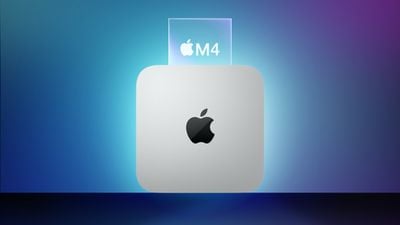
He expects the MacBook Air, Mac Studio, and Mac Pro to be updated with M4-series chips throughout 2025, but he did not mention the iMac.
Gurman had already shared a roadmap for M4 Macs , but he was more definitive this time with his claim that the first Macs with the M4 chip will be released later this year, rather than at some point between late 2024 and early 2025. October is a common month for Apple to release new Macs, so the MacBook Pro and Mac mini could be updated in around five months from now if Gurman's timeframes prove to be accurate.
Geekbench 6 results show that the M4 chip is up to 25% faster than the M3 chip for multi-core CPU performance. Manufactured with TSMC's second-generation 3nm process, the M4 chip is also more power efficient than the M3 chip.
Get weekly top MacRumors stories in your inbox.
Top Rated Comments
Just release an M4 Mac Mini and take my money already, please?
Probably 2025. MacBook Pros and the Studio will get there long before the Mini.
Either 2024 or 2025 Hopefully M4 won't have the same critical hardware flaw of M1, M2 and M3.
Popular Stories

Troubling iOS 17.5 Bug Reportedly Resurfacing Old Deleted Photos

Apple Previews Three New CarPlay Features Coming With iOS 18

iMessage Down for Some Users [Update: Service Restored]
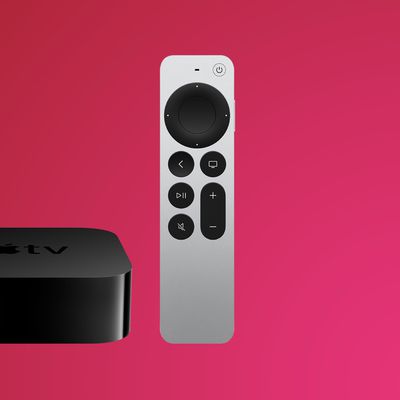
Apple Releases tvOS 17.5

OpenAI Announces ChatGPT App for Mac, GPT-4 for Free, and More

Hands-On With the New M4 OLED iPad Pro
Next article.

Our comprehensive guide highlighting every major new addition in iOS 17, plus how-tos that walk you through using the new features.

Apple News+ improvements, cross-platform tracker alerts, website app downloads for the EU, and more.

Get the most out your iPhone 15 with our complete guide to all the new features.
A deep dive into new features in macOS Sonoma, big and small.

Apple's annual Worldwide Developers Conference will kick off with a keynote on June 10.

Expected to see new AI-focused features and more. Preview coming at WWDC in June with public release in September.

AI-focused improvements, new features for Calculator and Notes, and more.

Action button expands to all models, new Capture button, camera improvements, and more.
Other Stories

1 day ago by Tim Hardwick

2 days ago by Tim Hardwick

3 days ago by Tim Hardwick

4 days ago by Juli Clover

4 days ago by Tim Hardwick
Wayfair to open its first large store, as physical locations make a comeback

What retail apocalypse?
Online home goods retailer Wayfair is opening its first namesake store, near Chicago, following a string of other digitally native companies that have turned to brick-and-mortar for growth.
In an ironic twist for a company that became a $12 billion powerhouse by persuading consumers to buy couches and beds online, Wayfair is leaning into the most basic building blocks of retail. That’s because no matter how far tech has evolved, shoppers still can’t try out a new mattress from their laptops or phones.
“If you think about the categories we’re in, they’re typically very visual categories, or very tactile, or, you know, considered purchases, because it’s reasonably expensive and you’re going to put a lot of care into picking the right item,” Wayfair CEO and co-founder Niraj Shah told CNBC.
“Depending on what purchase someone’s making, they may prefer the in-store experience and getting to work with an associate,” he said. “Or they may want to discuss financing or want design help, and we can provide all of those experiences. We provide them online as well, but sometimes, in-store can be either more pleasurable or more effective.”
The 150,000-square-foot megastore in Wilmette, Illinois, is set to open May 23. Wayfair follows other direct-to-consumer brands that have opened stores, including Warby Parker , Figs , Casper, Glossier and Everlane.
Wayfair’s retail ambitions come as online-only companies look to plot their next phases of growth in a landscape that has evolved since their companies were founded, making it harder than ever to run a profitable e-commerce business.
Privacy changes on Meta and Apple iOS have made it more difficult for marketers to target customers in advertising campaigns. Companies also face more competition from Chinese-linked upstarts such as Shein and Temu.
Returns and the scams that come along with them are a never-ending, money-losing game. With the proliferation of online marketplaces on Amazon , Walmart and Target , just about anyone can be a retailer — and brands can find themselves competing against their own manufacturers.
Many companies that started by selling directly to consumers now offer their wares in department stores and big-box retailers, but even that brings pitfalls . Brands that earned their competitive edge by gathering enormous amounts of data on their customers don’t have as much visibility when they’re working with wholesalers, nor do they make as much money.
They’re also subject to the whims of their partners and could be taken off the shelves with little notice or risk losing a primary revenue source if that wholesaler suddenly goes under or sees sales fall. When brands have their own stores in addition to websites, they have a lot more control over mitigating those risks.
Plus, torrid e-commerce growth during the Covid-19 pandemic has moderated and fallen to below its pre-pandemic low, U.S. Census data shows. Given the seemingly inextricable role online shopping plays in most Americans’ lives, some may be surprised to learn that the vast majority of retail sales — about 85% in 2023 — still happen offline, according to Census data.
“For some of my companies in our various experiences, [stores] can be your very best channel from an economics perspective — if you have a really good brand,” said Larry Cheng, a founding partner at Volition Capital, a technology growth equity fund that invests in software, internet and consumer companies. “It’s not going anywhere, it’s additive to online sales, it’s additive to attracting new customers, the economics can be great.”
What to expect at Wayfair's store
Wayfair’s new location will look somewhat like an Ikea in its size and on-site restaurant, but its assortment will offer a range of diverse styles as it works to become a one-stop shop for all things home.
“You’ll see furniture, you’ll see the marketplace, which is very decor centric, but we have home improvement, which includes large appliances, kitchen cabinetry, tile, doors, hardware, you’ll also see housewares, small electric, there’ll be storage and organization,” Liza Lefkowski, Wayfair’s vice president of merchandising and stores, told CNBC.
“You’ll see a number of categories outside of furniture, but that are very core to your home,” she said.
ng just one large-format store to complement a handful of smaller shops it opened under its specialty retail brands All Modern and Joss & Main.
In the future, Shah is envisioning a “whole portfolio of large-format stores” with a nationwide footprint.
Brick-and-mortar is back
Wayfair’s physical store ambitions reflect a bigger wave of brick-and-mortar openings.
In the early 2010s, new store openings largely outpaced closures, until the tide turned in 2017. Nearly 8,000 retail storefronts were shuttered and only about 5,000 new ones opened that year, according to Coresight Research’s U.S. and U.K. Store Tracker Databank .
The spike in store closures sparked headlines about the so-called retail apocalypse and warnings that stores would die off as shopping moved online.
For a while, that seemed to be true. New store closures outpaced openings until the trend changed in 2022. For the first time in five years, more storefronts opened than closed, resulting in 1,575 net new openings. There were 307 net new openings in 2023, and there have already been 521 net new openings in 2024, as of May 10.
Discount retailers such as Dollar General , Five Below , Burlington and TJX Companies have fueled a lot of that growth, said John Mercer, Coresight’s head of global research and managing director of data-driven research. But direct-to-consumer retailers are playing their part, as well.
Take Warby Parker , the glasses company credited with starting the direct-to-consumer movement. In May 2023, the retailer said it believed it could open more than 900 stores in the U.S. It opened about 40 in 2023, and has 40 more planned in 2024. The new store openings contributed to a 12% jump in revenue in 2023 compared with 2022.
Figs , which sells scrubs and other products for health-care professionals, sold its products exclusively online until it opened its first store in Los Angeles in November. It has another planned in Philadelphia for this summer. CEO Trina Spear told analysts during the company’s first-quarter earnings call May 9 that 40% of the people shopping in the Los Angeles store are new customers.
“And this is in our most penetrated market of Los Angeles. So, that’s great to see,” Spears said. “Health-care professionals are like everybody else, right? They want to engage with brands both online and off, and we’re seeing that in our Century City store.”
Other privately held direct-to-consumer brands have also expanded into retail stores, including bedding company Brooklinen, furniture store Burrow and apparel brands Everlane and Untuckit.
“Pure plays on [e-commerce] are saying, ‘We’re getting to a certain number, we’re doing fantastic on [e-commerce], but we won’t be able to hurdle this number no matter what ... if we don’t turn on another channel,’” said Rebecca Fitts, who previously served on Warby Parker’s in-house real estate team and is now the senior vice president of business strategy at real estate advisory firm Alvarez & Marsal Property Solutions .
“I don’t think every brand is going to get to a store count of a Warby, but they’re certainly looking at those lessons, and it bodes well,” she said.
High cost of entry
If direct-to-consumer brands could all open stores and suddenly boost sales and profitability, they’d all be doing it. But retail fundamentals can bring a steep learning curve for companies that started out as online disruptors.
Expanding into physical retail is challenging and expensive.
Companies looking to open stores need to figure out a physical location, along with furnishings and supplies, and the logistics, such as transporting inventory, said Amish Tolia, the co-founder and CEO of Leap, a start-up that helps brands open retail stores. They also need to determine how to drive foot traffic and operate a store, he said.
All those components require “time, energy, budget and resources, right? And so for as long as we can remember, besides a multi-brand department store, if you want to go set up your own fully branded retail environment, the barriers to entry have always been incredibly high,” Tolia said.
Some direct-to-consumer brands have already been burned after they expanded too quickly and demand fell.
Allbirds , whose market cap has gone from $4.1 billion following its initial public offering to about $114 million, rapidly opened dozens of stores over the last few years, bringing its total count to about 60, as of the end of March. But the shoe and apparel seller now plans to close 10 to 15 “underperforming” locations in the U.S. in 2024 so it can focus on “maximizing the productivity of our remaining stores,” executives said during the company’s first-quarter earnings call May 8.
Mattress brand Purple has also opened about 60 stores, but it said during the ICR consumer investor conference in January that its showrooms are perhaps “the toughest part of our model right now” because about a third of its locations “are problematic for one reason or another.”
“So, we’re going to slow [store openings] down a little bit in the coming year and try to figure out, how do we make sure that we get them to where they need to be so they’re profitable,” said Purple CEO Rob DeMartini. “They’re great brand beacons. But they’ve got to make some money.”
Wayfair, which hasn’t turned an annual profit since 2020, will face the same challenges as it embarks on its retail expansion.
The company spent about $348 million on capital expenditures in 2023 but has also slashed costs to save hundreds of millions of dollars and strengthen its cash position.
Wayfair said it’s starting slow and plans to roll out stores carefully, taking time to see what’s working and what isn’t before making future investments.
“The challenge with it is the capital expenditure upfront,” said Cheng, from Volition Capital.
“But ultimately, all of these brands, there’s not like this one channel that is the silver bullet,” he said. “The good brands, they work across all of them.”
More from CNBC:
- United says FAA cleared it to add new aircraft, routes after safety review
- Walmart earnings beat as discounter wins over more high-income shoppers
- Under Armour is laying off workers, retailer says North America sales will plunge
- Skip to main content
- Keyboard shortcuts for audio player
Russian President Putin makes first trip since inauguration to critical ally China
Charles Maynes

John Ruwitch
President Putin starts his first foreign trip of this new term: a two-day visit to China to meet with Chinese leader Xi Jinping. Here's the significance of this trip and what we can expect from it,
Copyright © 2024 NPR. All rights reserved. Visit our website terms of use and permissions pages at www.npr.org for further information.
NPR transcripts are created on a rush deadline by an NPR contractor. This text may not be in its final form and may be updated or revised in the future. Accuracy and availability may vary. The authoritative record of NPR’s programming is the audio record.

IMAGES
VIDEO
COMMENTS
Read more. Here are the typical things you can expect during an appointment with a urologist: 1. Provide a urine specimen, so don't go to the office with an empty bladder. Many urological conditions may prevent you from being able to hold urine in. So when you arrive, inform the office staff that you are ready to provide a specimen.
During your first visit with a Urologist Specialist of the Carolinas, you can rest assured you are in good hands. Our established medical staff treats a full spectrum of adult urological conditions to ensure you age healthy and gracefully. As the top specialists in our area, we provide treatment options with your best interests in mind.
Give you a physical exam. Perform a digital rectal exam (DRE) on men with prostate issues. Perform a pelvic exam on women. Order tests (urine, blood, scans, swabs to test for infections) Perform a cough stress test if you have urinary incontinence. Although some of these tests may be uncomfortable, they can provide important information about ...
There are many reasons why a patient will visit a urololgist. Dr. Mark Fallick joins the Urology Care Podcast to discuss what patients should expect at their first visit to a urologist's office. Dr. Fallick is a urologist at New Jersey Urology (NJU) in Vorhees, N.J. You can listen to the full episode here:
At your first urology appointment, your doctor will want to get to know you, your medical history, and the reason for your visit. Be prepared to talk about your incontinence with them or any other issues you might be having. Being upfront with your physician about what you're experiencing is the best way for them to create an appropriate ...
As an experienced board-certified urologist, here are the top things I want patients to expect at their first visit with a urologist: Verify Insurance Information Prior to the Visit. Nothing is more frustrating than having a delay at your first urologist appointment because of insurance troubles. I won't begin to try and explain the U.S ...
As an experienced board-certified urologist, here are the top things I want patients to expect at their first visit with a urologist: Verify Insurance Information Prior to the Visit. Nothing is more frustrating than having a delay at your first urologist appointment because of insurance troubles. I won't begin to try and explain the U.S ...
But if you're honest from the get-go it helps prepare you and our entire team." In some cases, advance lab work or imaging might go a long way toward making the visit more productive, or you may ...
Your urologist is likely to order tests to diagnose your condition and to determine the best way to treat it. Some of these tests may include: Physical examination. These will be different for males and females. If you're a man, your doctor may do a rectal exam. If you're a woman, you may need to have a pelvic exam.
By: Urology Care Foundation | Posted on: 22 Jul 2020. Dr. Brian Stork joins the Urology Care Podcast with some advice for our listeners about how to best prepare for a urology visit in our newest episode. Dr. Stork is a urologist in Muskegon, Michigan. He is also the Chair of the Urology Care Foundation's Patient Education Council.
Our urologist and prostate health expert, Dr. Desiderio Avila Jr., is also the only men's fertility specialist in the city. To make an appointment with us, simply request an appointment online. Alternatively, you can call us at (480) 961-2323. Our friendly staff and compassionate urologist are eager to help you get back to optimal health!
For many men, a visit to the urologist conjures dread.But despite the perceived unpleasantness, there are vital reasons to have a regular urology exam. Prostate cancer affects 1 in 8 American men and is the second-most-common form of cancer in males, according to the American Cancer Society. The good news: It is treatable, especially if caught early.
Some standard tests your urologist might order include blood tests, urine tests or swabs to search for infections. Cough Test - Your doctor may perform a cough test for those with urinary incontinence. This test is used to search for leakage from the urethra. Understanding what to expect at your first appointment with a urologist can help ...
The first visit to a urologist begins the process of determining the cause and best treatment course for the urological condition. Typically, the urologist will initially review the patient's full medical history, and especially in relation to past urological issues. Then, diagnostic tests (such as urine and blood tests, and scans) are often ...
A urologist deals with health issues of the male urinary tract - the genitourinary area - and the male reproductive system. They are trained to deal with diseases that involve the kidneys, adrenal glands, bladder, and male reproductive organs. Men's sexual health plays a large role in the field of urology, including erectile dysfunction ...
A first visit to the urologist can bring fear and trepidation. Whether your primary care physician has referred you, or you've decided to make an appointment on your own, knowing what to expect during your first urologist visit can go a long way in easing the fear of the unknown. Click to learn more!
During your first visit to a urologist, you can typically expect several steps: Medical History Review: The urologist will review your medical history, including current symptoms, past illnesses, and any previous surgeries. They will also ask about your lifestyle habits, such as smoking or alcohol use, and family medical history, especially ...
Knowing when you should schedule your first appointment with a urologist isn't always easy, and may even be a little intimidating. To help you prepare, Jay B...
What happens on the first visit to a urologist? On your first visit to a urologist, you can typically expect the following: Paperwork that may consist of questionnaires and a symptom diary. A medical review including a detailed medical history, any medications you are taking, and a complete assessment of all of your body systems. A discussion ...
US News is a recognized leader in college, grad school, hospital, mutual fund, and car rankings. Track elected officials, research health conditions, and find news you can use in politics ...
Formula 1 returns from its two-week absence on Sunday with a perennial favorite: the Emilia-Romagna Grand Prix at Imola. It's F1's first visit to Imola since 2022. Nestled in the Italian foothills ...
I'll be almost 7 weeks. Like. S. Sunshine49386. My doctor always does the first appointment between 8-9 weeks and then a follow up two weeks later at 10-11 weeks, then monthly after that. So my first appointment will be the third week of June, my EDD is 1/19/25 right now. Like. In June 2024 Babies. Long vent ahead so proceed with caution Not ...
Cities near Elektrostal. Places of interest. Pavlovskiy Posad Noginsk. Travel guide resource for your visit to Elektrostal. Discover the best of Elektrostal so you can plan your trip right.
The Real Housewives of Atlanta The Bachelor Sister Wives 90 Day Fiance Wife Swap The Amazing Race Australia Married at First Sight The Real Housewives of Dallas My 600-lb Life Last Week Tonight with John Oliver. ... Got inspired by a recent post so decided to visit Warhammer World. It's brilliant.
After the Dow Jones Industrial Average stock index hit a record high of 40,000 for the first time yesterday, Caleb Silver, editor-in-chief at Investopedia, explains how the movement was fueled by ...
64 reviews. Location 4.2. Cleanliness 3.5. Service 3.7. Value 3.6. The sanatorium "Valuevo" is a historical health resort located in a unique location of the New Moscow on the territory of 30 hectares of the ancient noble estate of Count Musin-Pushkin with a perfectly preserved architectural ensemble and a landscape park, in an ecologically ...
October is a common month for Apple to release new Macs, so the MacBook Pro and Mac mini could be updated in around five months from now if Gurman's timeframes prove to be accurate. Geekbench 6 ...
For the first time in five years, more storefronts opened than closed, resulting in 1,575 net new openings. There were 307 net new openings in 2023, and there have already been 521 net new ...
President Putin starts his first foreign trip of this new term: a two-day visit to China to meet with Chinese leader Xi Jinping. Here's the significance of this trip and what we can expect from it,
For Elektrostal' residential home builders who also act as developers, the job starts well before the first nail is driven. They perform local market research to determine whether the prospective homesites make sense in the Elektrostal', Moscow Oblast, Russia market, as well as survey the land on which the custom house will be built to make ...